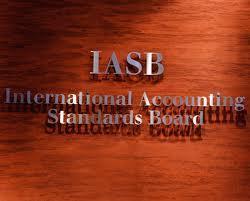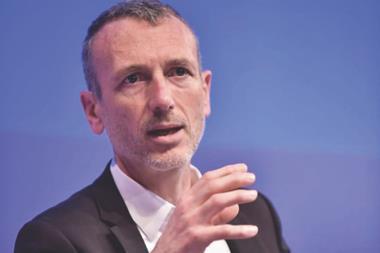Investors have called on the International Sustainability Standards Board (ISSB) to build on the foundation laid by the board’s first two sustainability standards, IFRS S-1 and S-2, rather than starting new projects.
ISSB staff member Greg Bartholomew said “supporting implementation of IFRS S-1 and S-2, was seen as the ISSB’s highest priority by users” for its future workplan.
He added that “the feedback from users was generally aligned with that received from other respondents, especially as it relates to the key messages as it relates to the ISSB’s strategic direction and balance of activities”.
The board issued International Financial Reporting Standard S1, General Sustainability-related Disclosures, and IFRS S2, Climate-change reporting, in March 2022, and the two standards are now in force with effect from 1 January 2024.
Other headline messages from investor users of sustainability information were that there is:
- general support for the criteria used to select sustainability-related risks and opportunities for standard-setting, although some investors suggested amendments or additions;
- mixed views on which projects to prioritise, but there was general support for working on at least one of four proposed sustainability projects; and
- rather than thinking in terms of siloed topics, investors see IFRS S-1 and S-2 as contributing to a broader sustainability narrative.
The discussion during the board’s December meeting round followed the launch of a consultation last May.
The paper asked for feedback on four potential sustainability-related research projects – biodiversity, ecosystems, and ecosystem services (BEES); human capital; human rights; and integration of sustainability-related financial information with other financial information.
The board identified seven criteria for assessing the relative merits of each candidate project, such as its importance to investors.
The board also said it would engage in so-called foundational work that would involve:
- supporting the implementation of the new standards;
- researching targeted improvements to those standards; and
- enhancing the Sustainability Accounting Standards Board (SASB) Standards.
The SASB standards are a key piece of the sustainability reporting landscape and act as guidance for companies applying IFRS S-1.
Also during its December meeting in Frankfurt, Germany, the ISSB gave the green light to issue a series of updates to the SASB standards.
Meanwhile, the board’s vice chair, Sue Lloyd, said she was “struck” by the strong support during a recent meeting with the board’s Investor Advisory Group for putting implementation support for the new standards ahead of developing new literature.
“Usually what we see in consultations, and, you know, what I’ve seen in the past, is it’s usually the investors who are really ambitious and demanding new stuff,” she said.
The investor feedback does, however, present a potential challenge for the board as it attempts to strike a balance between competing interests.
In particular, following on from the main theme of the board’s November meeting, there was little evidence of the clear steer that Lloyd had called for last year in the feedback to the agenda consultation.
And further complicating the landscape is not only the determination of standard setters such as the Global Reporting Initiative to press ahead with an ambitious workplan, but pressure from the Group of 7 Nations to tackle human capital and biodiversity.
At the same time, the board’s own advisors have called on the board to rethink the boundary between human capital and human rights.
ISSB chair Emmanuel Faber warned the board, however, that there remains a risk of fragmentation in sustainability reporting and that it is important to be proactive rather than rely on market forces to do the job.
He was determined, he said, “that we do not let the centrifugal forces win in this battle for what needs to be done”.


















